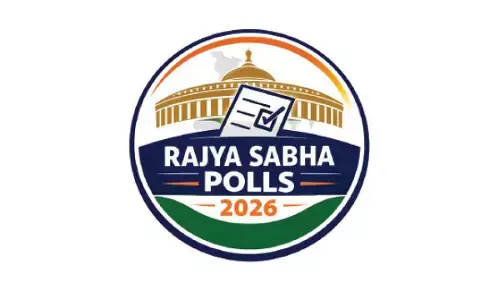The Future of Digital Privacy in India: Are We Doing Enough?

This article explores whether the new law is strong enough to safeguard citizens’ data. Let’s understand the challenges, global comparisons, and what it means for individuals and industries.
Personal data is one of the high-value assets in the fast growing digital world. Whether it is a social media usage , an e-commerce activity , health records or biometric data, our digital footprints are constantly being collected, analyzed, and stored.Therefore, it is vital for any nation to have stringent data protection laws in place.
In India, the recent approval of the Digital Personal Data Protection Act (DPDPA), 2023, was an essential step toward securing citizens’ data rights. In this article,we will try to find out the answer—is this law enough to safeguard digital privacy in India?
What do we understand about Data Protection?
Data Protection are those practices, laws, and mechanisms which are designed to ensure that personal data is collected, processed, stored, and shared in a secure and lawful manner. It includes privacy policies, user consent, encryption, breach notification, and accountability for how data is handled.
It is essential for individuals to have complete control over their personal information, and organizations should be transparent and responsible with the data they manage.
Role and Significance of Data Protection
Data protection plays a significant role not only in technical issues—it is also a matter of individual rights, economic strategy, and national security. Its importance includes:
- Safeguarding Personal Freedom: It is crucial to protect users from surveillance, profiling, and misuse of personal data.
- Enabling Trust: Building consumer trust is critical in digital platforms and services.
- Fostering Innovation: Data protection encourages responsible data use to support AI, machine learning, and cloud services.
- Preventing Cybercrime: Reducing the risks of identity theft, data breaches, and financial fraud.
- Global Compliance: Helping Indian companies meet international data regulations and compete globally.
Types of Data Protection Laws in India
Government has introduced many data protection laws which are making India's data protection more stronger and robust. In this section, we will share few important data protection laws passed by the government:
1. Information Technology Act, 2000 (IT Act)
The IT Act,2000 comprises Section 43A and 72 A,provides data protection provisions but lacks comprehensive coverage.The IT Act is one of the first acts to address electronic data and cybersecurity.
2. Digital Personal Data Protection Act, 2023 (DPDPA)
This act focuses specifically on personal data and defines key terms like "consent," "data fiduciary," and "data principal,". Enforcement of responsibilities on companies for data handling and breach reporting and providing right to access, correct, and erase personal data are benefits provided by this act.
3. Sectoral Regulations
Various regulators like SEBI, RBI, and IRDAI have domain-specific data guidelines—for example, the RBI mandates data localization for financial data.
Despite these laws, India still lacks a unified data protection authority with enforcement capabilities across all sectors.
Data Protection Challenges in India
India’s progress toward digital transformation is undoubtedly plausible,but it brings multiple challenges in enforcing effective data protection:
- Lack of Awareness: India is a country of 1.4 billion people and it is a challenge for the government to spread awareness and educate citizens about data protection. As a result, many people are unaware of how their data is collected and used.
- Inadequate Infrastructure: Small firms are unable to implement strong data security measures due to lack of funds.
- Ambiguity in Enforcement: Although our government has created laws like DPDPA and sets rules and guidelines, its enforcement mechanisms are still evolving.
- Cross-border Data Flow: India's approach to data localization has raised concerns about trade barriers and innovation restrictions.
- State Surveillance Concerns: The law grants broad exceptions to the government, raising questions about unchecked surveillance.
Impact of Data Privacy on Hi-Tech Industries
Data-Privacy, confidentiality, trust are common terms in the Hi-Tech sectors ,where we deal with millions of data points.Data-Privacy laws significantly influence operations , e-commerce, fintech, healthcare, and social media. Some key impacts include:
- Compliance Costs: Companies invest in infrastructure and legal frameworks to meet regulatory standards.
- Product Design: Privacy by design becomes essential, impacting app development and user experience.
- Global Expansion: Indian companies processing international data must comply with regulations such as the EU's GDPR or California's CCPA, which often exceed India’s current standards.
- Trust Building: Businesses with robust data protection gain a competitive advantage through customer trust.
A rapidly changing regulatory environment while balancing innovation and compliance is must for Startup companies.
Conclusion
The DPDP Act, 2023 is an encouraging start for India’s digital privacy framework. It addresses many persistent issues and reflects the nation’s intent to secure data rights in the digital age. However, it must develop further—with clearer enforcement protocols, stronger checks on government overreach, and better public awareness.
India true progress not just lies on passing laws , but on building a culture of responsible data governance so that individuals, businesses, and the state collaborate to protect the personal data.











